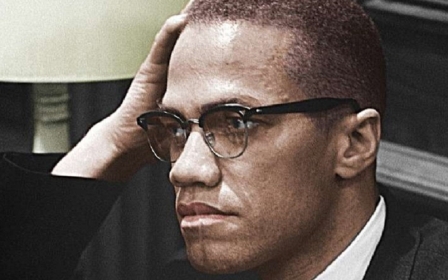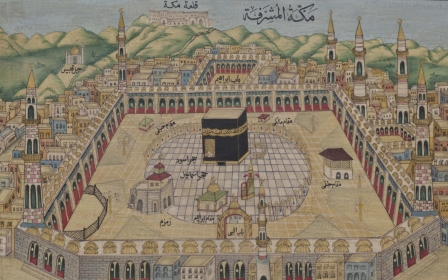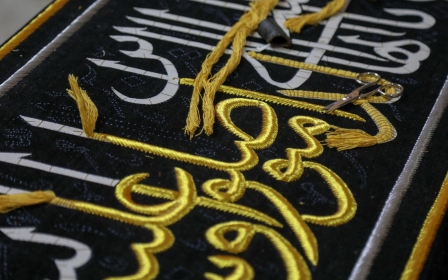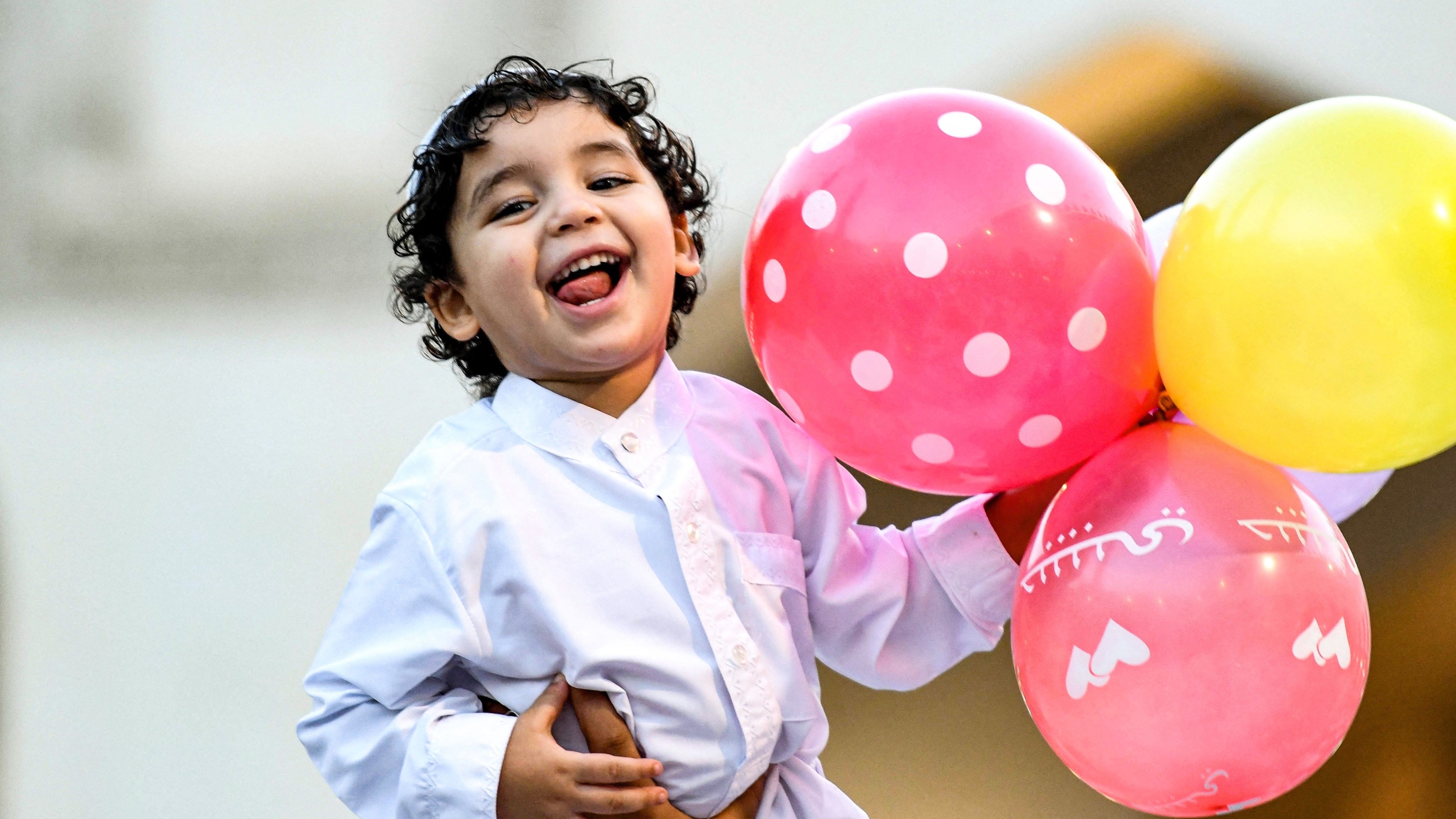
Eid al-Adha 2023: Muslims around the world mark 'festival of sacrifice'
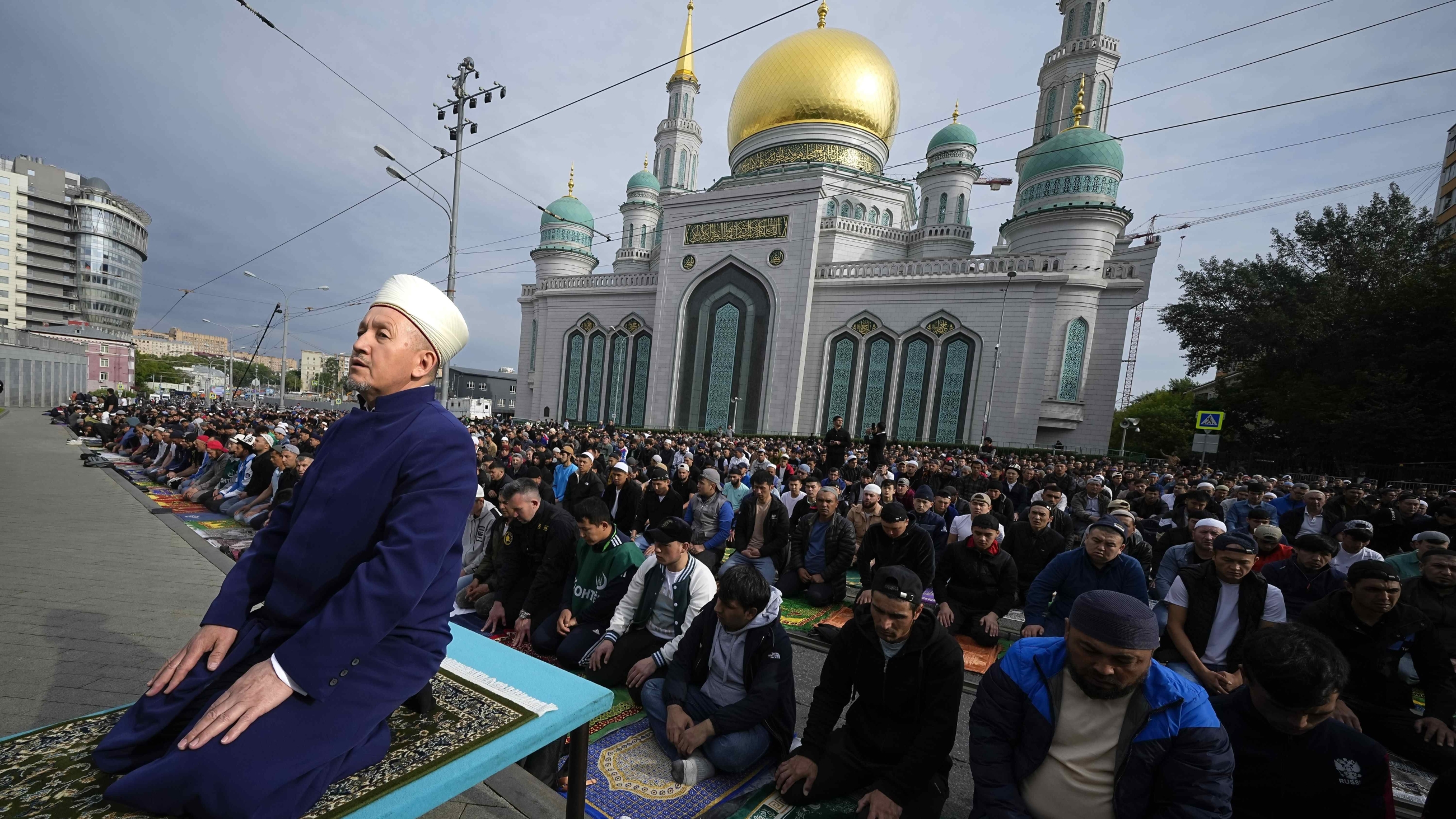
Muslims across the world are celebrating the festival of Eid al-Adha, which marks the Prophet Ibrahim's willingness to sacrifice his son Ismail at God's request. According to Islamic tradition, Muslims observe the occasion with a special Eid prayer and the sacrifice of an animal, which is usually a ram, goat or other hooved animal. The meat from the sacrificed animal is then shared among family members and the needy.
Eid al-Adha literally means "festival of sacrifice" and takes place during the Hajj pilgrimage. Due to differences in opinion on when the Islamic month of Dhul Hijjah begins, not all Muslims will be celebrating Eid on Wednesday, with some countries, including Morocco and Malaysia, marking the occasion on Thursday. In the image above, Muslims pray outside the Moscow Cathedral Mosque on Wednesday, and in the top image a boy holds balloons during prayers at Cairo's historic Al-Azhar mosque. (Above image: AP Photo/Alexander Zemlianichenko; Top image: AFP/Ahmed Hasan)
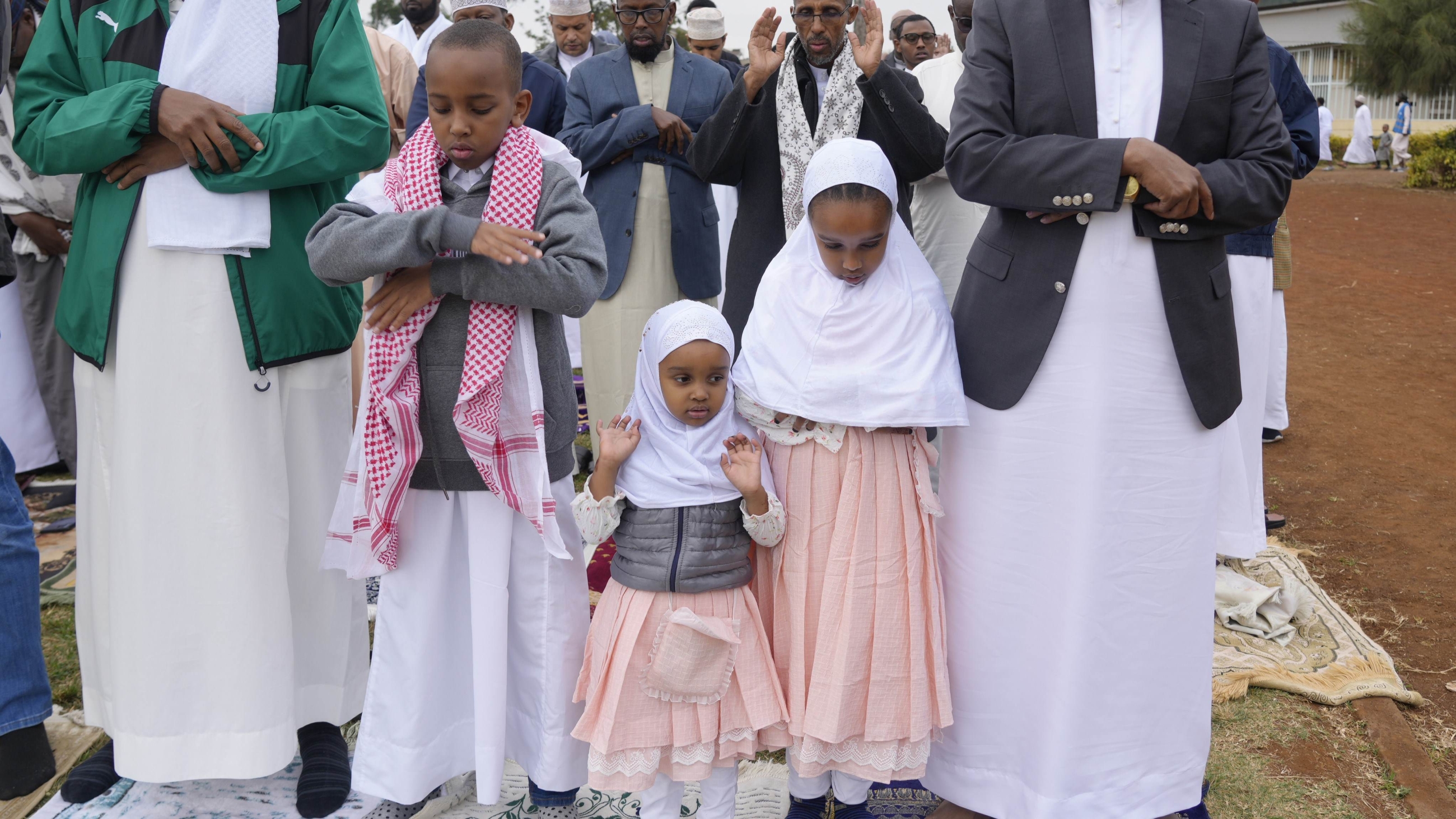
The Eid prayer is a special ritual performed on the morning of Eid al-Adha and usually takes place in a public gathering space, such as a park or stadium, or inside a mosque. The occasion usually draws families with children who join their parents in prayer, as demonstrated in this picture of a family praying in Nairobi, Kenya. (AP Photo/Sayyid Abdul Azim)
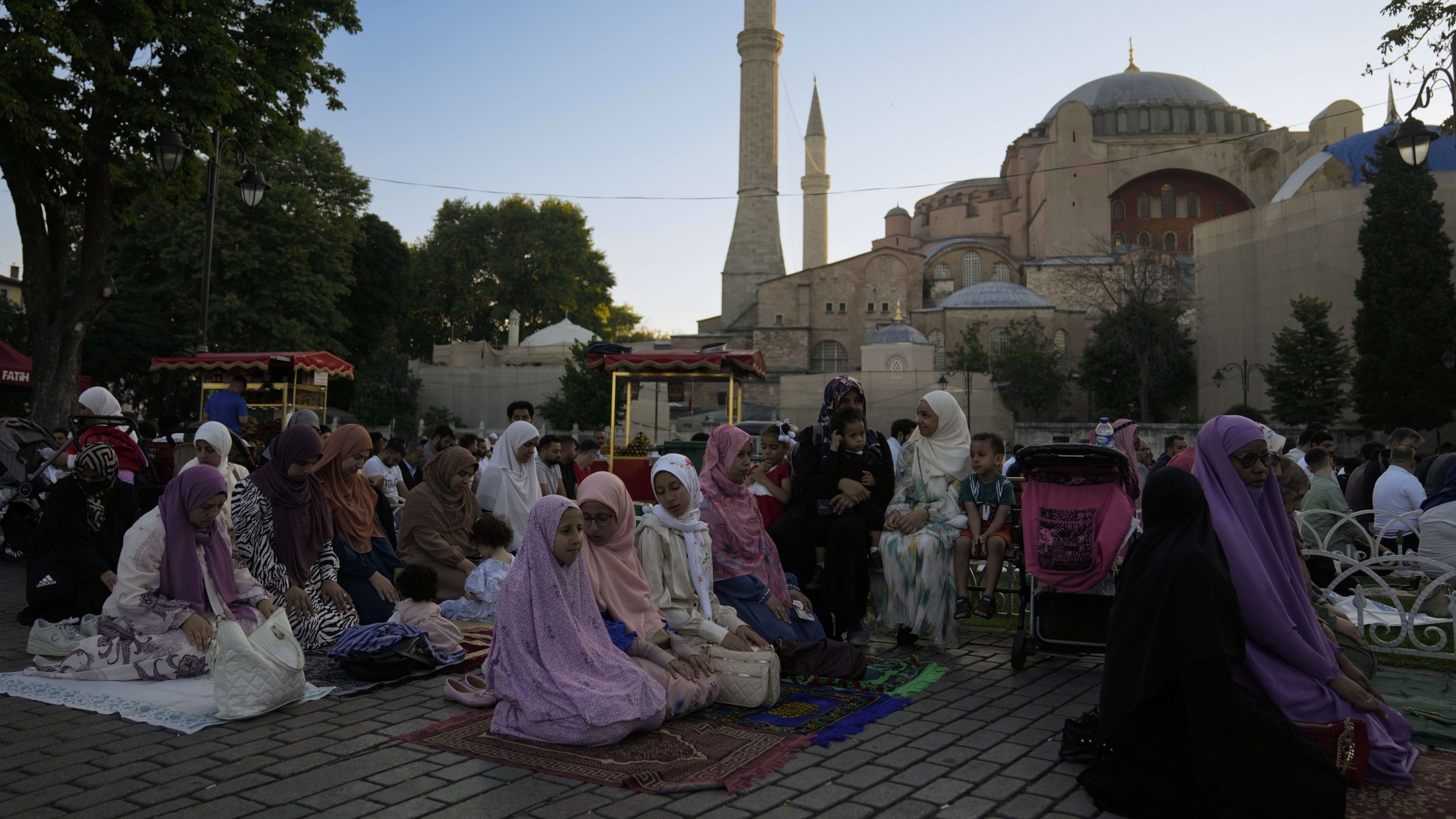
The Eid prayer is by far the most widely attended Islamic ritual of the year and mosques often struggle to accommodate worshippers within their walls. In Muslim-majority countries, it is common to see prayers spilling out onto the streets. In this image from Istanbul, Muslim women pray near the iconic Hagia Sophia mosque. (AP Photo/Khalil Hamra)
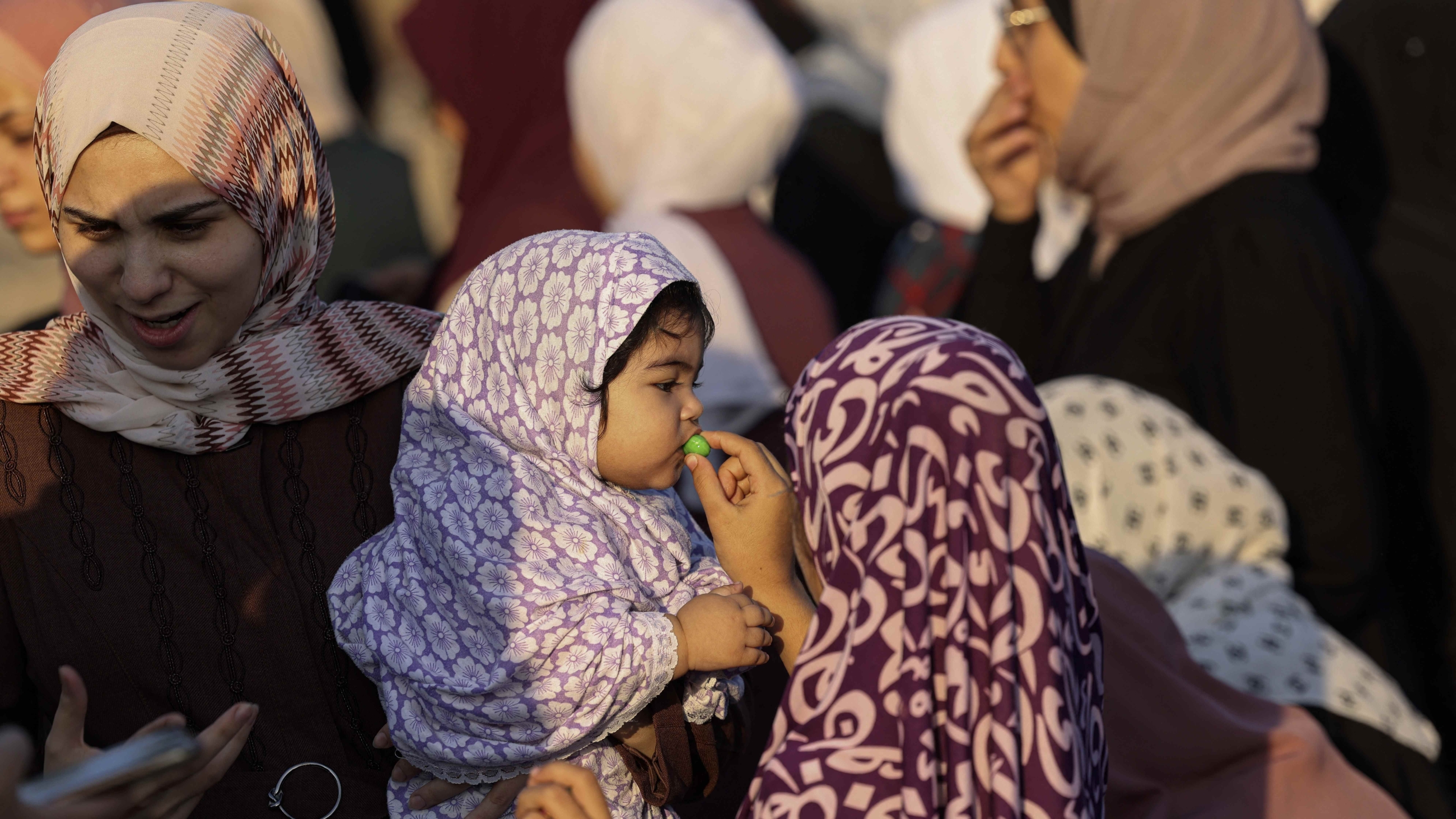
In the image above, Palestinian worshippers gather in Gaza City to perform the Eid al-Adha morning prayer. (AFP/Mohammed Abed)
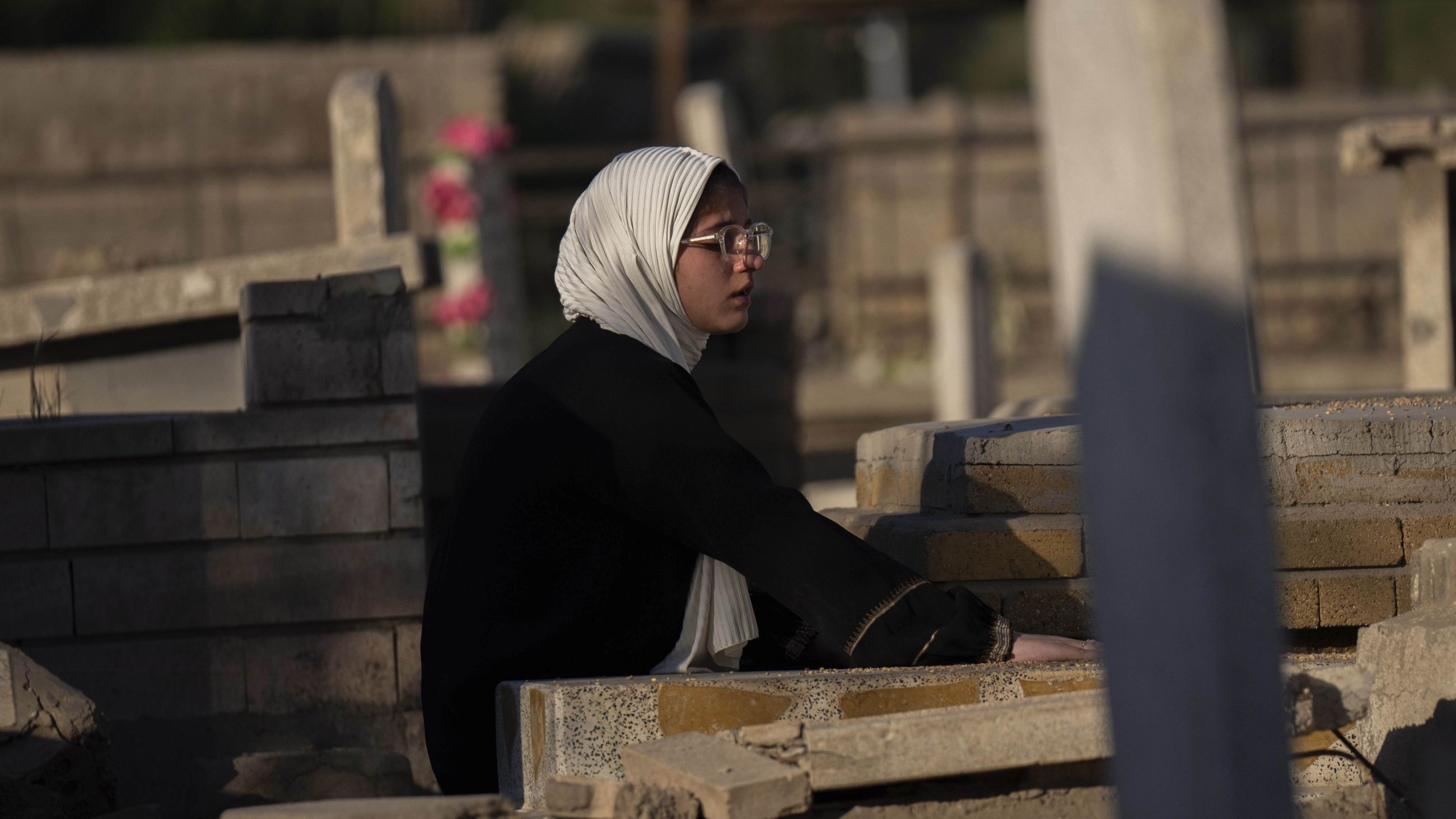
On both Eid al-Fitr and Eid al-Adha, it is a tradition to visit the graves of loved ones who have passed away and to pray for their forgiveness and salvation at their graveside. In this picture, taken on Wednesday, an Iraqi woman visits the grave of a relative. (AP Photo/Hadi Mizban)
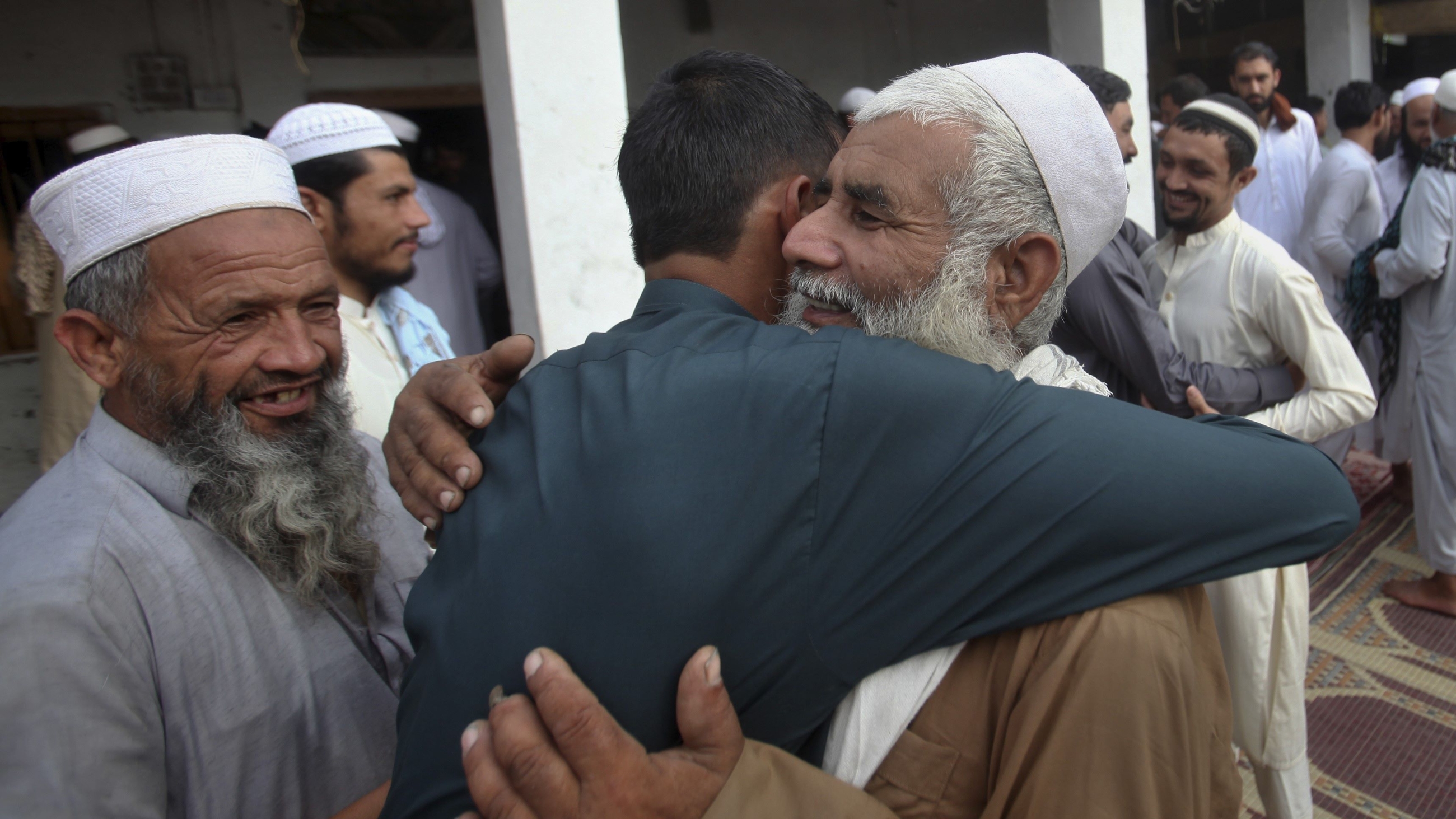
Another common tradition associated with Eid is the embracing of friends and relatives after the Eid prayer. As an official holiday in Muslim-majority states, which lasts several days in many instances, Eid is a time when Muslims visit relatives that they may not have seen in a long time. It is common for extended families to hold large feasts on the occasion. Here, Afghan refugees share Eid al-Adha greetings after attending a prayer at a mosque in the Kazana refugee camp on the outskirts of the Pakistani city of Peshawar. (AP Photo/Muhammad Sajjad)
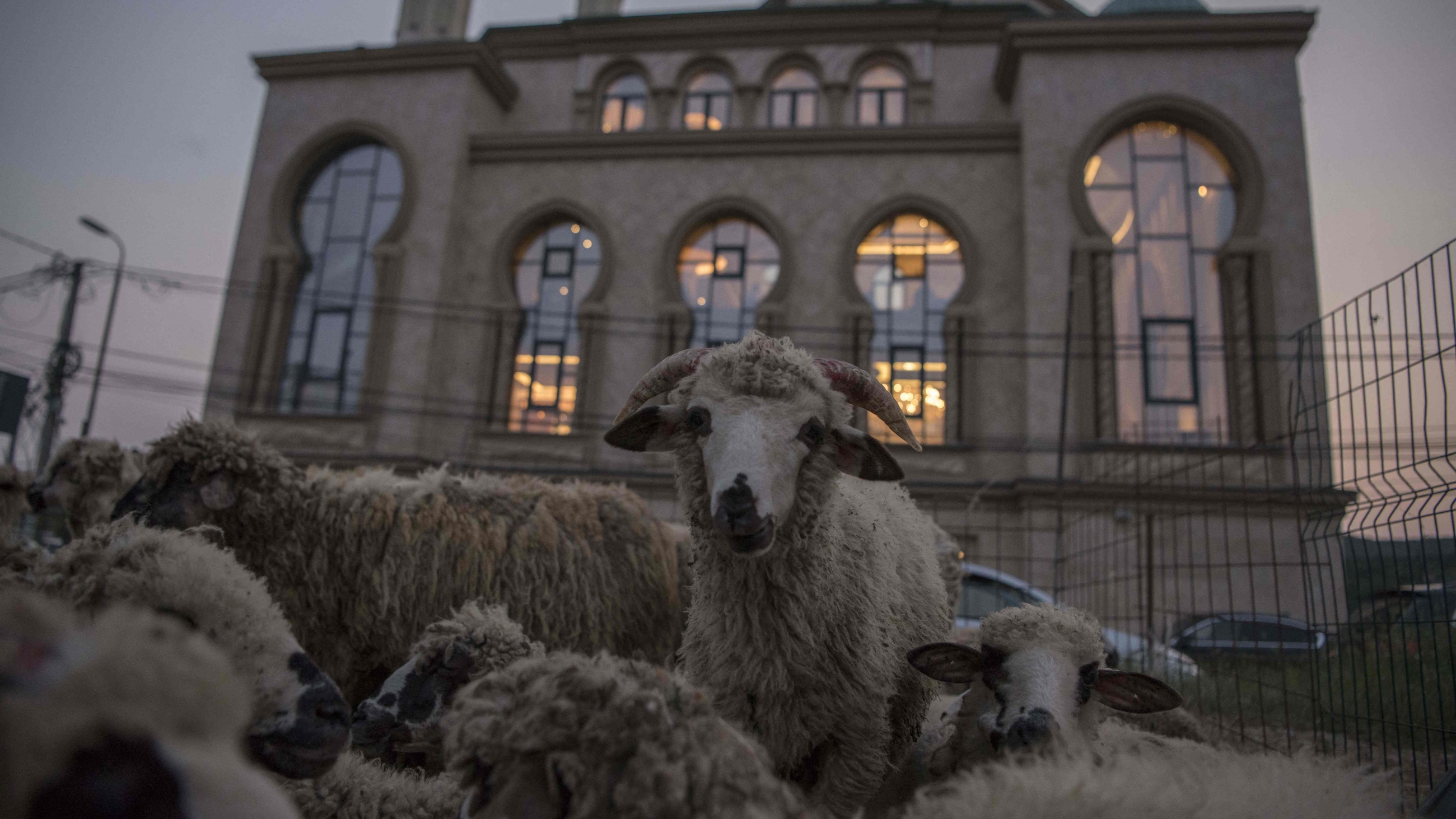
The sacrifice of an animal is a religious obligation for all adult Muslims who are able to afford it. The sacrifice of livestock allows for all Muslims to mark the occasion, particularly the less fortunate. For an individual Muslim, the sacrifice is usually of a small animal, such as a goat, but Muslim families sometimes opt to share the sacrifice of a larger animal, such as a cow or camel. In this picture, sheep await their sale in front of a mosque near Kosovo's capital, Pristina. (AFP/Armend Nimani)
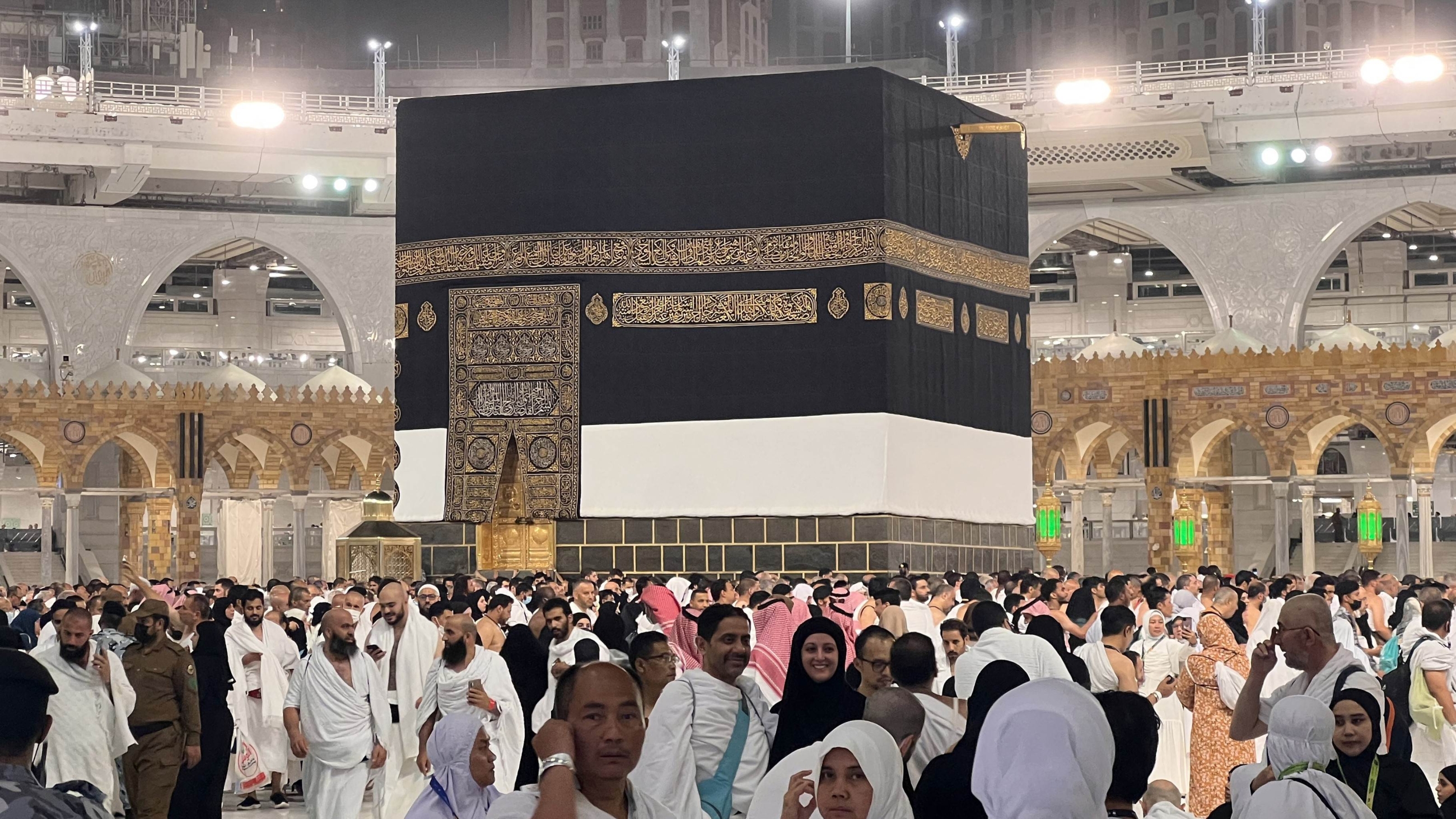
Eid al-Adha is celebrated on the third day of the Hajj pilgrimage and both occasions mark the same religious narrative of the Prophet Ibrahim's sacrifice. In this picture, Muslim pilgrims gather around the Kaaba, Islam's holiest shrine, at the Grand Mosque in the holy city of Mecca early on Wednesday. (AFP/Sajjad Hussain)
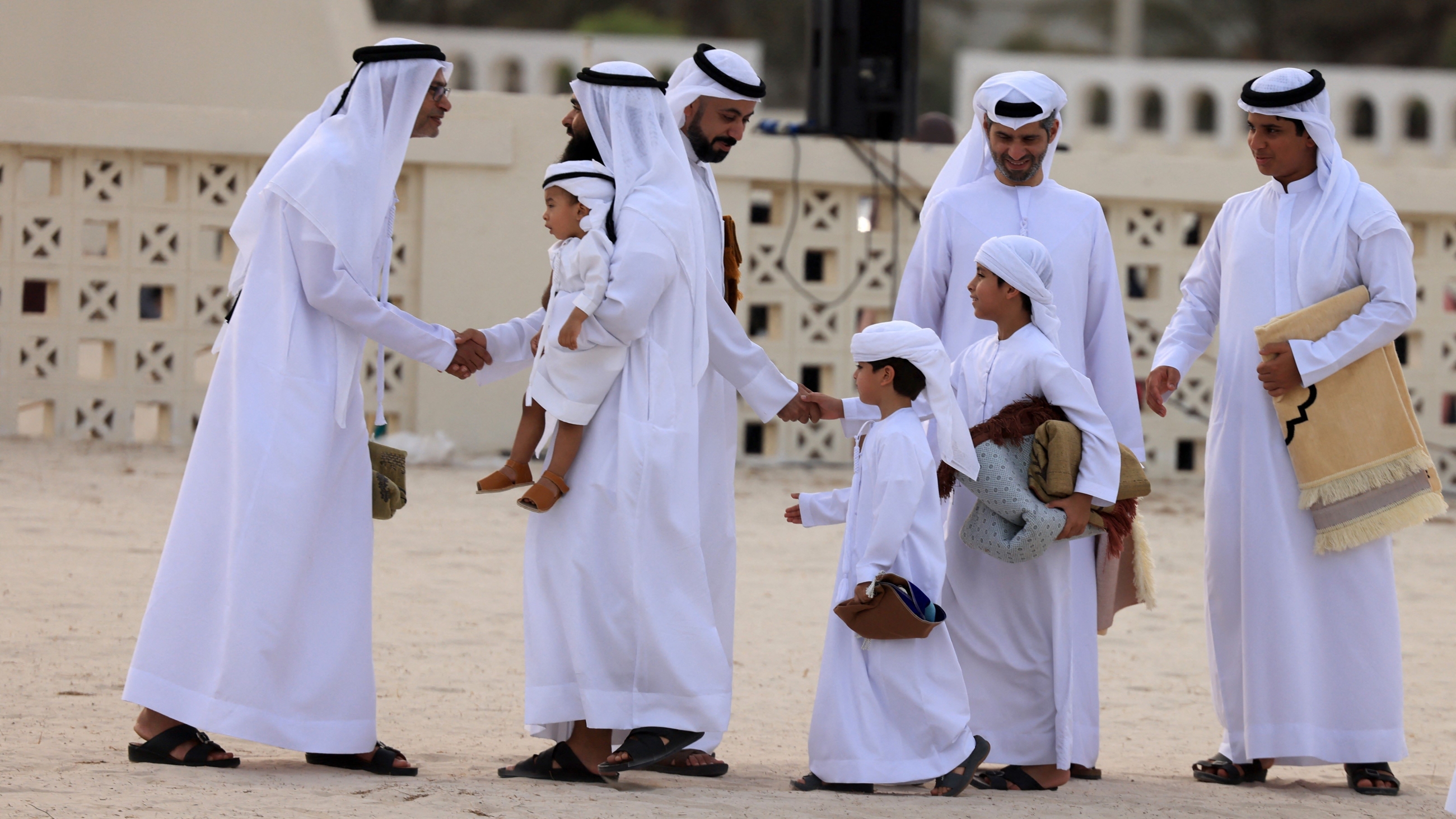
Emirati Muslims exchange wishes after Eid al-Adha morning prayers at Dubai's main mosque. (AFP photo/Karim Sahib)
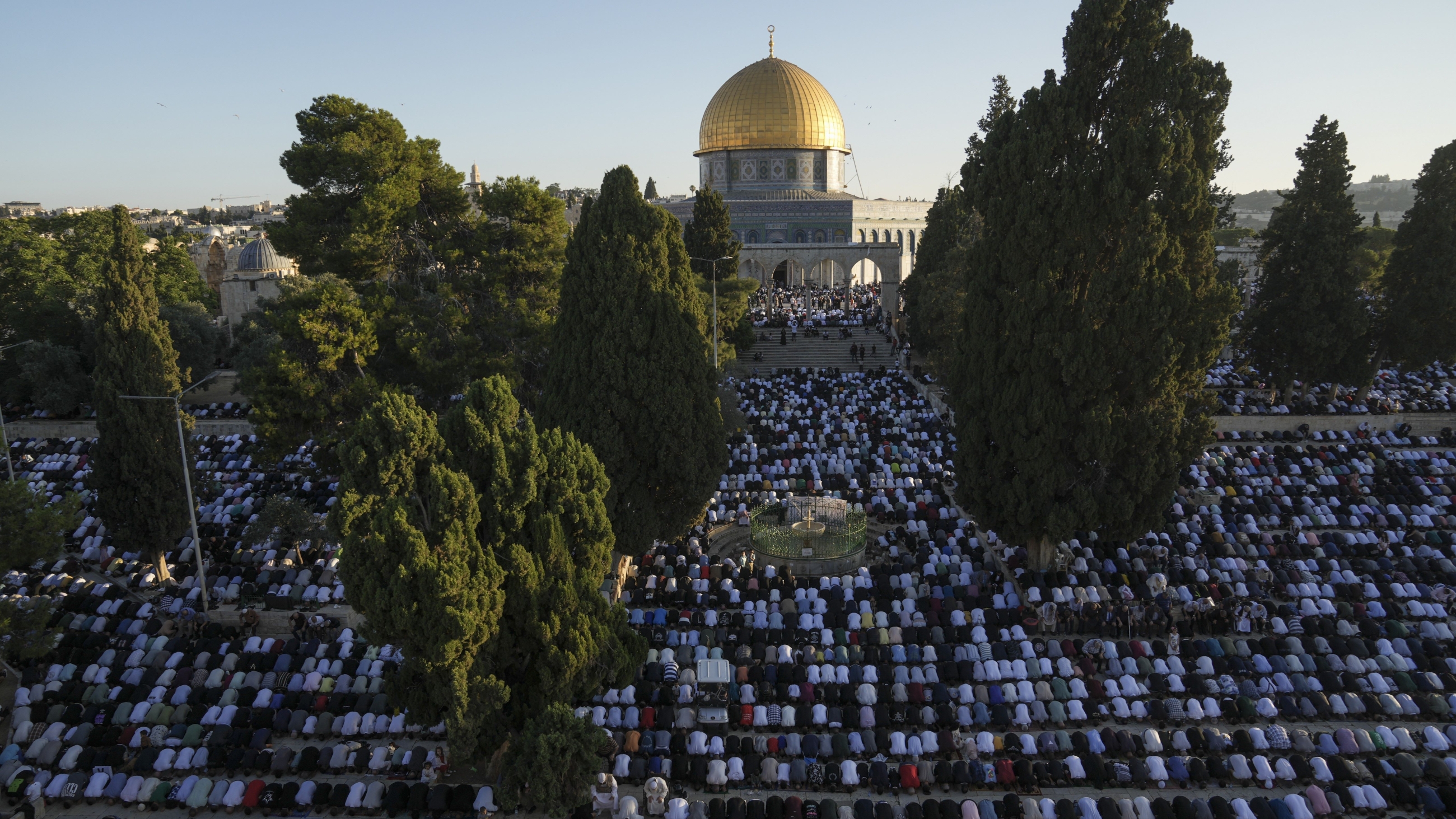
Muslim worshippers offer Eid al-Adha prayers next to the Dome of the Rock shrine at Al-Aqsa Mosque in Jerusalem's Old City. The Prophet Ibrahim, or Abraham, is a revered figure in Judaism, Christianity and Islam, which consider him a patriarch. In the Biblical tradition, he is considered the ancestor of most Israelite prophets, and in Islam, he is believed to be the ancestor of the Prophet Muhammad. (AP Photo/Mahmoud Illean)
Middle East Eye delivers independent and unrivalled coverage and analysis of the Middle East, North Africa and beyond. To learn more about republishing this content and the associated fees, please fill out this form. More about MEE can be found here.


